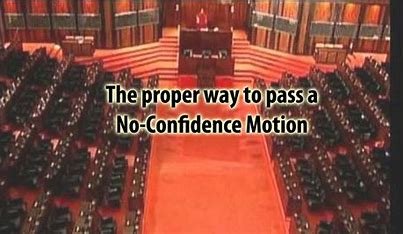A Constitutional Mechanism to Hold Governments Accountable
No-confidence motions are an important instrument in parliamentary democracies because they allow the legislative body to voice its dissatisfaction with the current government. This constitutional institution, based on democratic values, serves as a check on executive power, providing accountability and openness in governance. This article examines the relevance and ramifications of no-confidence motions, including their historical context and impact on political stability.
The Historical Context of No-Confidence Motions
The origins of no-confidence motions can be traced back to the 17th century British Parliament. The United Kingdom established the pattern for other countries to adopt similar methods to hold politicians responsible as the mother of parliamentary democracy. Various nations integrated the no-confidence motion into their constitutional frameworks over time, with minor changes to suit their distinct political environments.
The Mechanics of Initiating a No-Confidence Motion
A no-confidence motion is typically introduced by opposition parties who are dissatisfied with the government’s policies or behavior. To begin the procedure, a member of the legislative body must introduce a motion explaining specific grounds for their lack of trust in the government. This starts a crucial debate in parliament, in which the administration can justify its actions and policies.
The Debate and Voting Process
Following a no-confidence motion, the debate can be heated, reflecting the division of political beliefs. At this point, both the administration and the opposition submit their reasons in an attempt to persuade the undecided members of parliament. The ultimate decision is based on a vote, and the fate of the government is at stake. If the motion receives enough support, the government could be overthrown, causing dramatic changes in the political landscape.
Ramifications of a Successful No-Confidence Motion
A successful no-confidence vote frequently sets off a chain of events with far-reaching implications. Depending on the country’s constitution, the president may dissolve parliament and call new elections. If the parliament cannot agree on a new government, the country may be forced to hold early elections. This political instability has the potential to disrupt policies and governance, having an impact on both local and foreign affairs.


